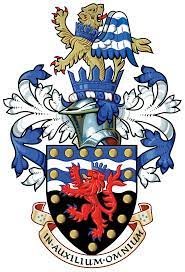
Grooming Predators: Law and Order Professionals
On this page:
Understand the ‘who’s who’ and ‘what’s what’ of the system
Law and order professionals who we should have been able to trust (but groomed)
Focus on policing culture (coming soon)
Sources of support
Coming soon
Adult groomers are often narcissists (not always, but often) and as such consider that normal rules do not apply to them - be that driving too fast, exhibitionism, breaking marriage vows……
Where better for them to escape detection than in those most respected of professions, the judiciary, the police force or a solicitor/barristers office.
Moreover, the conditions grounds are fertile for adult grooming. Someone reporting a crime is necessarily a ‘victim’. However strong they are individually, they re vulnerable because they are seeking help. There is an automatic imbalance of power between police officer or a solicitor and a member of the public in need of support. It’s a double betrayal - not only are these abusers considering themselves above the law, we should have the right to expect them to be exemplary when it comes to abiding by the law and offering protection to the public.
CAAGe looks at adult grooming and adult groomers…..
-

The Victims' Code (England and Wales)
The Ministry of Justice has produced a ‘Victims Code’, the code of justice for victims in England and Wales
Summarised:
To be able to understand and to be understood
To have the details of the crime recorded quickly
To be provided with information when reporting the crime
To be referred to services for support
To be provided with information about compensation
To be provided with information about the investigation and prosecution
To make a Victim Personal Statement
To be given information about the trial, trial process and your role as a witness
To be given information about the outcome of the case and any appeals
To be paid expenses and have property returned
To be given information about the offender following a conviction
The College of policing has made clear for police forces what this means to them: Victims Code, College of Policing
-

Victims Charter, Northern Ireland
Norther Ireland has a separate Victims Charter:
Victims Charter, Northern Ireland
Summarised, your rights are to:
be treated fairly, professionally, and with dignity and respect;
be understood and to understand;
be kept updated;
have your needs considered by service providers;
be supported;
apply for compensation if you were a victim of a violent crime;
ask for a court familiarisation visit;
be kept separate from the offender;
tell the court how the crime has harmed you;
to be told how the offender’s sentence is managed;
complain!
-

Victim's Code, Scotland
You have the rights to
Be treated in a respectful, sensitive, tailored, professional and nondiscriminatory manner;
Be able to obtain information about what is happening in the investigation or proceedings, where it is appropriate and relevant;
Understand information you are given and be understood in any information you provide;
Have your needs taken into consideration;
Where appropriate, be able to participate effectively in the investigation and proceedings;
Have access to appropriate support during and after the investigation and proceedings;
Be protected from further victimisation, intimidation and retaliation during and after the investigation and proceedings.
-

Who's who in the legal world, and who regulates them?
CAAGe has put together - from the various regulators’ websites - an overview of who does what when representing the public legally (in criminal cases) and who regulates them.
This is on our ‘Seeking Legal Help’ page.
-

What is the SRA?
This Wikipedia article explains well the role of the SRA, The Solicitors Regulation Authority:
The SRA themselves say “We regulate all solicitors and most law firms in England and Wales. We protect and help the public by making sure: solicitors and law firms meet our high standards. we take action against solicitors who don't follow our rules - for instance, by taking someone's money or acting dishonestly.”
CAAGe’s experience has been that the SRA is paid for by solicitors and are unlikely to redirect you to the correct authority to make a complaint.
-

How to make a complaint against the police
The IOPC (Independent Office for Police Conduct)has put together a useful guide to police complaints system.
Download the guide: How to make a complaint against the police
-

IOPC: How to complain if the Police don't handle your complaint well
The police should investigate your complaint.
If they have failed to do this properly, the IOPC (Independent Office for Police Conduct) can take a look.
(But you must exhaust the complaints process first)
Law and Order Professionals we should have been able to trust
-

PC Owen Davies
PC Owen Davies was taking pictures of people and sharing without permission or consent, often with his colleagues and with derisive messages including:
people who had been detained in a police cell
people in hospital
an officer with an unknown woman.
He also shared personal details of someone convicted of a crime and details of a hate crime report. IOPC report: PC Owen Davies
Please note that at CAAGe we have extra concerns regarding this case, including how many officers knew but couldn’t/didn’t ‘whistle blow’, and the fact that an officer was ‘with’ a woman.
-

Dominic Green, PC, Isle of Wight
Dominic Green groomed a vulnerable, depressed woman he met while on duty, having stopped the untaxed car she was driving.
-

'Antony Ray', the catfish lawyer
The solicitor who called himself Antony Ray duped (catfished) women online - until his cover was blown. But justice has yet to be done.
-

Lee Rimmel, West Midlands Police and Inspector Tony Lumb, Sussex Police
Nicola Brooks was stalked and abused by a serving police officer, Lee Rimmell, who has escaped justice.
And then she was sexually groomed by the Police Officer, Inspector Tony Lumb, who should have helped her.
She’s bravely told the story, despite a serious condition and massive stress levels, even reaching a landmark case with Facebook in the process.
-

A Devon and Cornwall Officer
‘Samantha’s story, as told by her solicitor:
How Police Officers Groom People for Sexual Abuse
The officer, in CAAGe’s view, should hve been named unless further legal action is expected.
As we hve seen repeatedly, it’s rare for sexual groomers to only groom once!
-

Michael Wood, County Durham (UK) Judge
Familiar story.
Commits abuse
Steps down on full pay whilst investigated
Retires on medical grounds before the judgement.
Never faces more than a reprimad.
Sources of Support
-
Please be patient, more on its way!!
-
A website by Diane Wetendorf who worked with battered women for thirty-five years, twenty-five of which focused on women who have suffered abuse at the hand of the police: Abuse of Power
The site is not easily accessible on some devices, and whilst aimed at victims of DV (Domestic Violence) is also useful in the context of grooming.
-
If a Police Officer has let you down, you may, under some circumstances, be able to apply for Legal Aid: Legal Aid, UK government site
-
This book by Diane Wetendorf is aimed at US victims of DV (Domestic Violence) at the hands of police officers.
Police Domestic Violence: Handbook for Victims
Costs $3.50 USD
Available for download in ebook formats:txt, pdb, lrf, pdf, mobi, and epub
Not yet reviewed by CAAGe.
-
Victim Support can offer all kinds of support, including preparing to report to the police and preparing for court: Victim Support website
Coming soon:
Policing culture
Research
Policing and reporting
How the legal system fails victims
The CAAGe position

